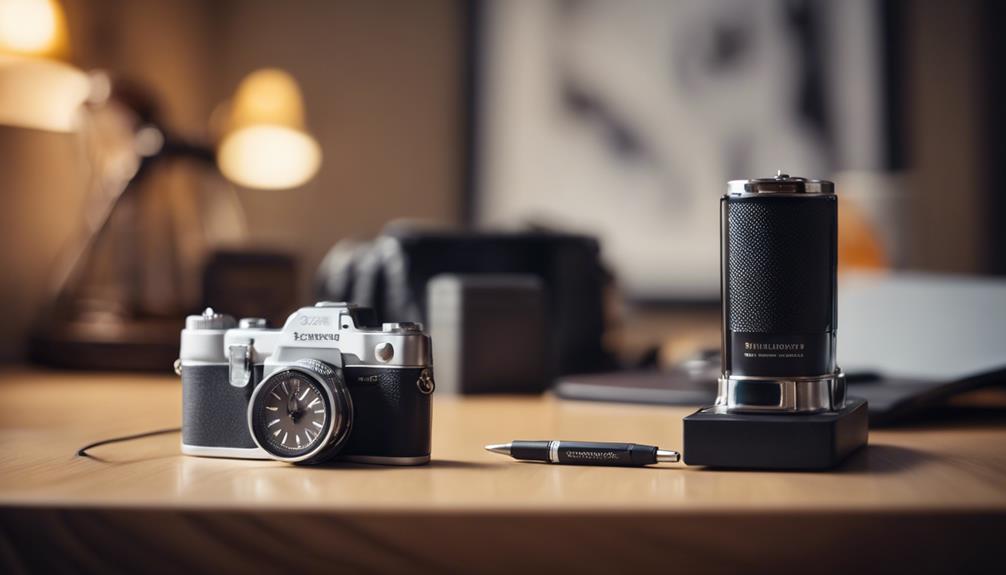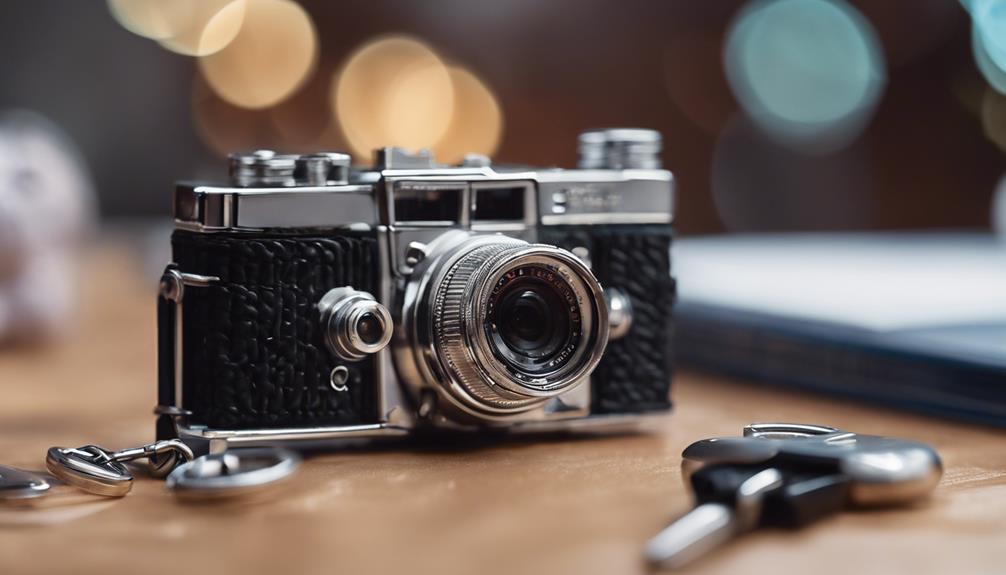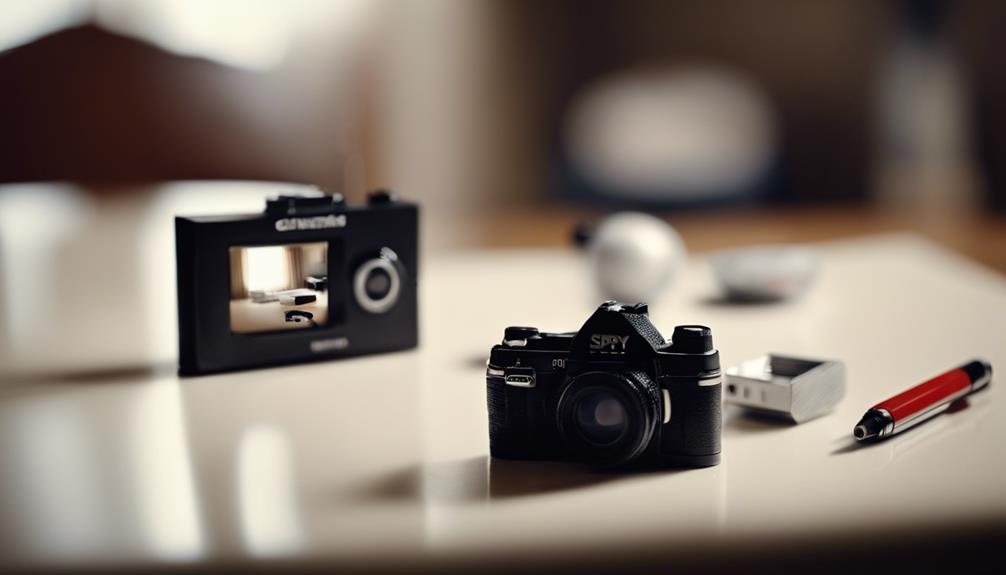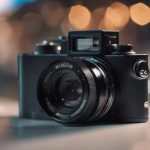Hidden Cameras, Body Cameras, and Mini Cameras are three spy camera types to explore. Hidden Cameras are for discreet surveillance, while Body Cameras are wearable for on-the-go recording. Mini Cameras offer compact designs ideal for discreet use. Hidden Cameras focus on covert operations, Body Cameras on hands-free recording, and Mini Cameras on portability. Each type has specific features to take into account, like battery life and video quality. Different scenarios call for different spy cameras, so understanding their capabilities and limitations is essential. Choosing the right one depends on your surveillance needs and environment.
Hidden Cameras

Hidden cameras are covert surveillance devices designed to discreetly capture audio or video footage without being easily detected. These devices are commonly used for various purposes, including monitoring employees, enhancing home security, or conducting undercover investigations. However, the use of hidden cameras raises significant privacy concerns.
Covert surveillance through hidden cameras can intrude upon individuals' privacy rights, as they may be recorded without their knowledge or consent. This raises ethical questions regarding the boundaries of surveillance and the protection of personal information. In many jurisdictions, there are strict regulations governing the use of hidden cameras to prevent misuse and safeguard individuals' privacy.
Privacy concerns related to hidden cameras extend to both public and private spaces. While monitoring public areas for security purposes is generally more accepted, using hidden cameras in private settings such as homes, bathrooms, or changing rooms is considered a violation of privacy.
It's essential for individuals and organizations to balance the need for surveillance with respecting individuals' right to privacy when utilizing hidden cameras for surveillance purposes.
Body Cameras
Body cameras, also known as wearable cameras, are compact devices attached to a person's clothing or gear to record audio and video footage from the wearer's perspective. These cameras have gained popularity among law enforcement officers, security personnel, and even the general public for various purposes, such as evidence collection, personal safety, and documenting experiences.
Privacy concerns are an important issue surrounding the use of body cameras. Questions arise about the recording of individuals without their consent, potential breaches of privacy in sensitive situations, and the storage and handling of the recorded data. Regulations and guidelines are essential to address these concerns and ensure that the use of body cameras is ethical and lawful.
Legal implications also play a significant role in the utilization of body cameras. Laws regarding recording in public spaces, consent requirements, and the admissibility of footage as evidence in court must be carefully considered. Failure to comply with legal requirements can lead to issues such as evidence inadmissibility or legal challenges. Understanding the legal framework surrounding body cameras is essential for their responsible use.
Mini Cameras

Mini cameras, also referred to as spy cameras, are compact surveillance devices designed for discreet recording in various settings. These tiny devices are commonly used for covert monitoring due to their small size and inconspicuous nature.
When considering a mini camera, two important factors to evaluate are battery life and recording quality.
Battery life is an essential aspect of mini cameras, as it determines how long the device can operate without requiring a recharge. It's important to choose a mini camera with a battery life that suits your recording needs. Longer battery life ensures extended surveillance periods without the need for frequent recharging, enhancing the camera's effectiveness in capturing footage.
Recording quality is another crucial consideration when selecting a mini camera. The recording quality determines the clarity and detail of the footage captured. Opt for a mini camera that offers high-definition recording to guarantee clear and crisp video footage, enabling you to capture important details effectively. Prioritize recording quality to enhance the overall surveillance capabilities of your mini camera.
Conclusion
To wrap up, hidden cameras, body cameras, and mini cameras are three common types of spy cameras used for surveillance and security purposes. Each type offers unique benefits and features, allowing for discreet monitoring in various settings.
Whether for personal use or professional surveillance, these spy cameras provide effective solutions for capturing covert footage. Select the right type of camera based on your specific needs and requirements to guarantee excellent results.


